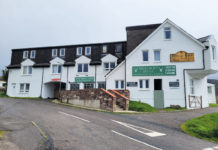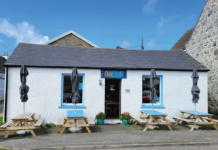While much has changed in the past three decades, many of the challenges remain the same, writes chartered surveyor Alan Gordon

THE beginning of the year is traditionally a time to reflect and, as I look back on 30 years with DM Hall, it is difficult to avoid mixed feelings.
Recessions have come and gone, the commercial market has collapsed and risen again and the nature of personal communication has changed beyond all recognition.
But some things remain constant, and I am reminded of this when I think of one of my first clients with whom I still maintain a strong business relationship, Pravesh (Bubbles) Randev and, latterly, his brother Rahul.
When I first met Bubbles, he was running a small lock-up pub, The Rock, in the Dunbartonshire housing estate of Bellsmyre.
Thirty years later, he and his brother now run a valuable estate of outlets on the outskirts of Glasgow, including the Eagle Lodge in Bishopbriggs, Garvies in Milngave, The Grove in Lenzie and The Larder in Bearsden.
As the licensed trade has gone through convulsions caused by changing social habits, a shifting demographic, the smoking ban and new drink driving limit, they have been in the vanguard of a new type of food-led, family-friendly outlets which provide a genuine service to their communities.
The primary constant has been their attitude to their business – they have worked hard, chosen good venues, shown fiscal prudence and sought appropriate professional guidance.
They are a case study in how to evolve and survive in changing times.
And times have certainly changed since I joined DM Hall three decades ago.
In those days, private individuals simply were not involved in commercial property, apart from a few very wealthy families; and most industrial and retail sites were held by property companies and the big brewers.
That all changed with the ‘big bang’ in the UK financial sector when banks became keen to grow their debt books and started to lend to individuals.

As the money taps were opened, other amateur developers and investors emerged; this trickle of private entrepreneurship turned into a flood with buy-to-let, a sector whose pendulum is only now swinging the other way as a result of swingeing tax and regulatory changes.
After the chaos of 2008, banks are now largely once again fulfilling their proper traditional funding role – averse to risk and measured in their assessment of risk.
That said, there is currently plenty of funding available for suitable investment opportunities with a good business case.
Perhaps the greatest changes I have seen are in technology and social interaction.
Without seeming like the office curmudgeon, when I started out information was exchanged by word of mouth – either by phone or in the pub.
Now email is the sine qua non. It was never meant to replace conversation, but it essentially has; it is now used as a record of conversations that used to be based on individual trust and professional integrity.
That said, I have been delighted to see the back of carbon copies of documents and word processors which could only save 200 words at a time.
Advancing age does not mean that I cannot see some of the benefits of technology.
But the lessons of three decades of the leisure property market are best encapsulated by Bubbles and Rahul.
The licensed/leisure property market has shown remarkable resilience to all that has come its way over the years, and is bracing itself for the inevitable challenges that will follow the impending business rates revaluation in April this year.
The tides of commerce may ebb and flow, but a good venue which keeps the customer happy will always float to the top.
• Alan Gordon is principal commercial partner at DM Hall Chartered Surveyors.























